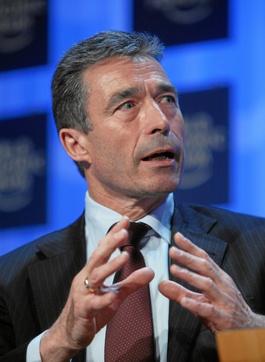
Love social networks
Published on
Translation by:
James FrisciaRafa Rubio, a doctor of law and professor at the Complutense university in Madrid who specialises in lobbies, social networks and media, highlights the advantages of the strategy
Large law firms and consulting companies, with employees spread across the world, have realised the incredible benefits of creating corporate social networks. They have started using contact management systems which allow employees to share their ‘rolodexes’ – organising contacts, linking them with certain industries or specialities, and facilitating connections with the right people. ‘It is necessary to think about networks, work within networks, and understand that a brand’s power is, more than ever, the sum of the interactions among employees, suppliers and customers,’ explains professor Rafa Rubio.
Facebook the new BT: bringing people together
Two cases demonstrate the theory developed by the American social psychologist Stanley Milgram in 1967, that between any two people there exist maximally just six nodes or degrees of separation. ‘I promoted a fundraising campaign for the Il Portico association to support their theatre and organise a new program for disabled people,’ writes Riccardo Friede from Italy on facebook. ‘My social network helped me to broadcast the initiative and find donors.’ The result was 2,000 euros and the help of professionals; one year on and they already have a season of plays programmed. Bobby Peacock in London was able to locate his brother through Facebook after fourteen years with no trace. ‘It is extremely stressful to not have any clue about the whereabouts of loved ones or even if they are alive,’ he posts. ‘Now a new chapter has started for me and my family.’
'Privacy control will be solved by increasing user familiarity with the tools and culture of social networks'
Between our friendships, the other friendships of our friends and so on, we could create a chart of all the connections that exist in our city alone. The main issue arises out of the great debate of privacy, says professor Rafa Rubio. ‘The issue of privacy control will be solved by increasing user familiarity with the tools and culture of social networks. The opportunities open to us are innumerable, and will renew the relevance of the individual and society which had been declining for many years.’
Commoners jog with Danish prime minister
 Anders Fogh Rasmussen, the former Danish prime minister and current secretary general of Nato, was the first European government executive to use social networking, and he knew how to leverage his profile. He organised an event to go jogging near his vacation residence north of Copenhagen in which he and one hundred of his online buddies ran seven kilometers together. One of the members of the Danish liberal party, Soeren Lauridsen, confirmed that prime minister Rasmussen was delighted that his online network could afford him this opportunity to connect with ordinary citizens.
Anders Fogh Rasmussen, the former Danish prime minister and current secretary general of Nato, was the first European government executive to use social networking, and he knew how to leverage his profile. He organised an event to go jogging near his vacation residence north of Copenhagen in which he and one hundred of his online buddies ran seven kilometers together. One of the members of the Danish liberal party, Soeren Lauridsen, confirmed that prime minister Rasmussen was delighted that his online network could afford him this opportunity to connect with ordinary citizens.
Internet marketing expert Zubin Kutar says businessmen should learn to lose their fear of social media and start viewing them as an investment. In one article, Kutar points out that investment in these spaces requires more time than money. Companies should take a reserved stance, leaving it to the people who frequent networks to determine its role themselves. It seems the former Danish Prime Minister learned this lesson well. ‘Whilst social networks don’t directly win you votes, they can have a decisive influence coordinating and mobilising a campaign,’ says professor Rafa Rubio. ‘Social media is a fundamental tool for transmitting information, mobilising a countless number of individuals to serve vital roles in the electoral campaign.’ Perhaps we have found our first love, ran our business or simply shared our profile with friends. So when considering some of the issues of social networks, we should bear in mind that, as with cars, videogames or science: maybe it’s not the tools that are evil, just the way we use them.
Images: Rasmussen/ main (cc) Yohann.aberkane; (cc) World Economic Forum/ both courtesy of Flickr
Translated from Movilizaciones, reencuentros y beneficios: La fertilidad de las redes sociales



